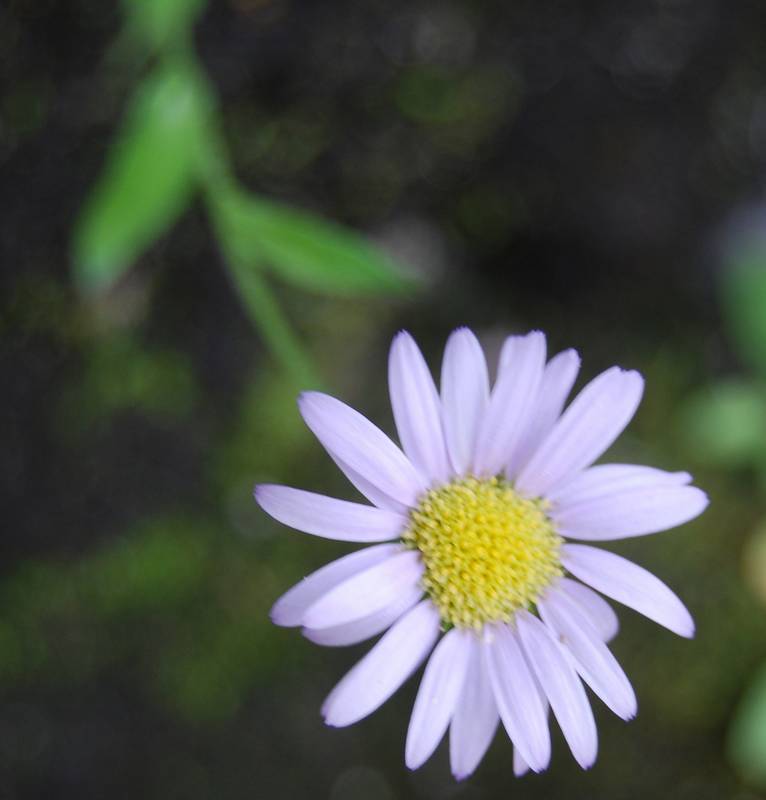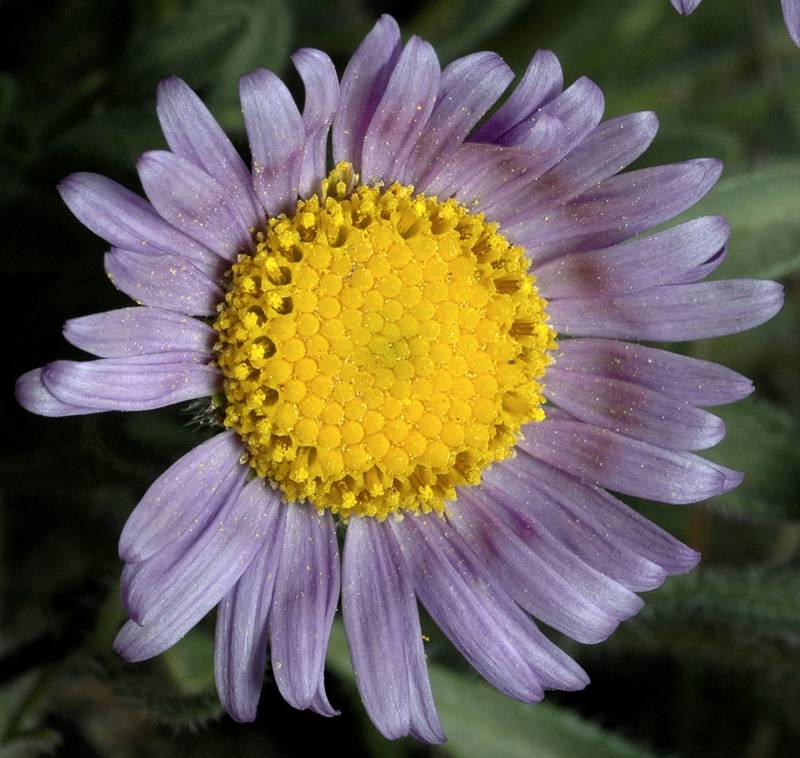|
Leiberg's fleabane
|
hairy-seeded daisy, cushion fleabane
|
| Perennial from a stout, branched, woody base, 7-25 cm. tall, herbage with soft, curled hairs and stalked glands. |
Taprooted perennial with short-branched, woody base; stems to 15 cm. high; plants more or less spreading-hairy and glandular throughout. |
Basal leaves broadly oblanceolate to elliptic, entire or with fine teeth, up to 12 cm. long and 2 cm. wide; cauline leaves several, fairly well developed, oblanceolate to elliptic. |
Basal leaves linear-oblanceolate to spatulate, up to 8 cm. long and 12 mm. wide, the cauline leaves reduced. |
Heads 1-5, the disk 7-14 mm. wide; involucre 5-8 mm. high, the bracts sub-equal, thin, green, loose; rays 20-45, pistillate, blue or pink, rarely white, 5-12 mm. long and 1.3-2 mm. wide; disk corollas 3-4.3 mm. long, yellow; pappus of 12-16 capillary bristles. |
Heads solitary, hemispheric, the disk 9-20 mm. wide; involucre 5-9 mm. high; rays 15-45, pale pink or purple to deep violet, 4-15 mm. long and 1.3-3.6 mm. wide; pappus of 20-30 capillary bristles. |
|
Achenes densely covered with long, silky hairs. |
|
|
|
|
| June-August |
April-June |
| Cliffs and rocky places at moderate to high elevations in the mountains. |
Dry, open, typically rocky areas, often with sagebrush. |
Occurring east of the Cascades crest in In the Wenatchee Mountains of Okanogan, Chelan and Kittitas counties; British Columbia to Washington.
|
Occurring east of the Cascades crest in Washington; British Columbia to Oregon, east to western Idaho.
|
| Native |
Native |
| Not of concern |
Not of concern |
E. acris, E. aliceae, E. annuus, E. aureus, E. basalticus, E. bloomeri, E. caespitosus, E. chrysopsidis, E. compositus, E. corymbosus, E. davisii, E. disparipilus, E. divergens, E. eatonii, E. elatus, E. filifolius, E. flettii, E. glacialis, E. howellii, E. inornatus, E. karvinskianus, E. linearis, E. lonchophyllus, E. nivalis, E. oreganus, E. peregrinus, E. philadelphicus, E. piperianus, E. poliospermus, E. pumilus, E. salishii, E. speciosus, E. strigosus, E. subtrinervis |
E. acris, E. aliceae, E. annuus, E. aureus, E. basalticus, E. bloomeri, E. caespitosus, E. chrysopsidis, E. compositus, E. corymbosus, E. davisii, E. disparipilus, E. divergens, E. eatonii, E. elatus, E. filifolius, E. flettii, E. glacialis, E. howellii, E. inornatus, E. karvinskianus, E. leibergii, E. linearis, E. lonchophyllus, E. nivalis, E. oreganus, E. peregrinus, E. philadelphicus, E. piperianus, E. pumilus, E. salishii, E. speciosus, E. strigosus, E. subtrinervis |
|
|
| |
BC,
OR,
WA
Flora NW,
PNW Herbaria
WildflowerSearch
iNaturalist (observations)
USDA Plants Database



